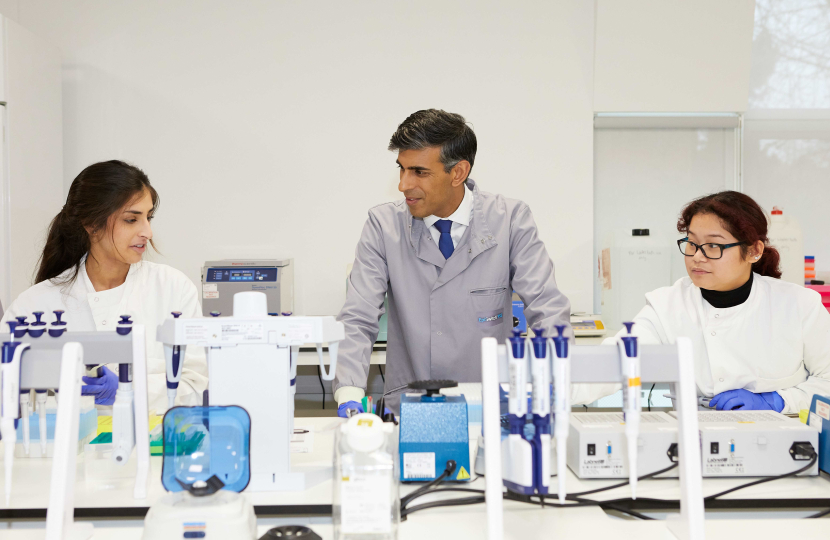
Men are not the best at taking care of themselves. We tend to ignore pains hoping they’ll go away rather than heading to the doctor’s surgery.
Even though I’m the son of a GP and a pharmacist, I still find myself putting off seeing the doctor and falling into the trap of hoping that symptoms will sort themselves out in time if left alone.
This typically male tendency is all the more pronounced when problems involve our private parts. Sometimes we need a nudge to get things checked out – and that nudge could save our lives.
This reticence can have devastating results. Men are quite literally ‘dying of embarrassment’. We must stop the needless prostate deaths.
Men in Yorkshire are significantly more likely to be diagnosed with late-stage prostate cancer than men living in London. Nearly a quarter (23%) of men in Yorkshire have advanced cancer when they are diagnosed, compared to 15% in the capital.
I want to pay tribute to the work done by charities such as Prostate Cancer Research. I am delighted that I’m going to become an ambassador for this wonderful charity, which helps to raise awareness of this terrible disease and pushes for better preventative measures.
I also want to thank the many constituents who have raised the issue with me in recent years.
Early detection greatly improves treatment options and increases chances of excellent outcomes, so that people can continue to live full and healthy lives.
But I also know that if it’s caught late, treatment can be far more complex and sometimes unsuccessful.
Tragically, one in ten will die within five years of diagnosis, either because the cancer is so advanced by the time it is detected or because they have contracted an aggressive form of the disease.
In 2022, the disease surpassed breast cancer to become the most common form of cancer in the UK, and a record 55,000 men received a diagnosis the following year.
Every year, around 12,000 men die from prostate cancer. That is even higher than the number of deaths from breast cancer. But we could prevent many of these deaths by catching the disease earlier.
In the UK, around 15 per cent of cases are diagnosed after the cancer has spread into other parts of the body. For cancers detected at this point, the survival rate is below 50 per cent. So, we need a national effort to boost early detection, save lives and prevent needless deaths.
The best way to do this is through a targeted national screening programme.
A letter or email asking you to come in to be screened is just the nudge that most men need to get things checked out.
Given that we know which demographics are most vulnerable, designing a targeted screening programme will be relatively straightforward. That is why, as Prime Minister, I funded the first steps towards one. But we must now go further and faster, taking advantage of new medical breakthroughs.
A targeted national screening programme will save lives – and reduce the burden on the NHS, since it is far easier, and cheaper, to treat prostate cancer in its early stages.
As Olympic cycling hero Sir Chris Hoy recently highlighted so movingly, prostate cancer has a terrible tendency to hit generation after generation of the same family. If we got those most at risk in for screening early, we could save thousands of lives.
The argument against a targeted national screening programme had been that three out of four men testing positive using the current blood test are found not to have prostate cancer on further investigation, an admittedly high rate of so-called ‘false positives’.
Relying solely on the current test means there is a danger that people end up having invasive procedures and treatments unnecessarily.
There is also the fact that the current test misses around one in seven cancers, giving some people false reassurance that everything is fine.
But a new generation of more accurate tests is addressing these problems. These new tests, many of which were developed here in Britain, take the accuracy level from around 65 per cent to well over 90 per cent. And they can distinguish between aggressive and non-aggressive forms of prostate cancer.
In addition, advances in artificial intelligence are enhancing the accuracy of MRI scans. These developments are why I am optimistic about the next decade.
And then there’s the money that a screening programme would save. While the cost of diagnosing prostate cancer is falling – new tests only cost a few hundred pounds – the cost of late-stage treatment has tripled over the past decade.
A targeted scheme would bring net economic benefits of more than £200m – and that’s before you even begin to consider the lives saved and painful treatment avoided.
What we need now is a targeted national screening programme, using the latest diagnostic techniques, to catch prostate cancer early.
As a country, we have an opportunity to stop the needless prostate deaths – and we must seize it.